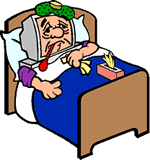| Avoiding A Computer Virus |
| |
| Index |
|
|
| |
| What is a
Trojan Horse program? |
| A Trojan Horse is a malicious, security-breaking
program that disguises itself as something safe, such as a game,
screensaver, photo or word document. A Trojan Horse is not a
virus, but it is just as dangerous. They can delete files, steel
your passwords and spread by sending itself to everyone in your
email address book. The Trojan horse got is name from the legendary
war of Trojan, where the Greeks won the war by hiding in a huge
wooden horse. This disguise got them into the fortified city
of Troy where they unleashed a successful attack. |
| |
| What is a Worm?
|
| Worms are similar to viruses, in that they can
duplicate themselves and infect your files. A worm, unlike a
virus, can automatically spread itself to other computers over
a network. Worms usually affect computer servers that host websites.
Worms can cause your favourite websites to become inaccessible.
|
| |
| What is a Hoax? |
| A hoax is a threat of something that is not real
(a big lie). Hoaxes are often spread by chain letter emails.
Fortunately, many virus warnings turn out to be hoaxes. A hoax
can however cause people to damage their own systems. A good
example was the "sulfnbk.exe" virus hoax back in April 2001.
The news of this so called virus spread rapidly, instructing
that the file "sulfnbk.exe" was a virus and if you found it
on your PC, you should delete it. It also said anti-virus software
cannot detect it and that you should delete it before May 25
(the date the virus attacks). Who would have guessed that sulfnbk.exe
is a standard Windows system file found on every PC. The icon
for the sulfnbk.exe file even looked a bit spooky. Many misinformed
people were deleting this important file from their machines.
|
| |
| Tips on avoiding
infections: |
-
 Install
anti-virus software from a reputable company. (e.g. McAfee,
Norton & Pc-cillin). Don't be complacent. Anti-virus programs
will not keep you 100% safe from attacks. However, the chance
of catching a virus is reduced. Install
anti-virus software from a reputable company. (e.g. McAfee,
Norton & Pc-cillin). Don't be complacent. Anti-virus programs
will not keep you 100% safe from attacks. However, the chance
of catching a virus is reduced.
- Update your anti-virus regularly. New viruses are created
every day.
- Scan any new files for viruses that you download or receive
before running them.
- Do regular backups of important files in the event you
need to recover them after a virus attack.
- Viruses and Trojan horses are spread by email. Just because
the email is from someone you know doesn't mean it safe.
Trojan horses can send themselves to people in the address
book of the infected computer without the owner's knowledge.
Always scan attachments before opening them.
- Viruses only spread when the infected file is executed.
It is safe to read a plain text email with a virus attachment.
You can safely save the attachment to your computer and
scan it for viruses. However, anti-virus software is not
good at catching Trojan horse programs. Check the file for
multiple extension remembering that only the last one counts.
What appears to be Calypso.mp3 may actually be Calypso.mp3.exe.
(Right click on the file and choose properties to see the
extensions.) If you are uncertain about an email attachment,
delete the email.
|
| |
|
|
| |
| |
|
|
|
|
|
|



